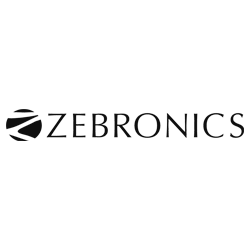The best job application forms are polished and consistent with your brand (e.g., have your company colours and logo at the top). They should be ordered, clear, and concise in addition to being easy to access.
Job application forms should flow naturally, beginning with the applicant’s name, for example, and it should always be clear what information is being requested and why. (Pro tip: Steer clear of questions that could reveal an applicant’s age, race, disability, or religion in order to prevent any kind of discrimination lawsuit.)
While application forms for jobs differ from company to company and job to position, they frequently contain many of the following form fields that can be filled out.
Contact information
To follow up with an applicant regarding the position, you need to know their basic contact details, such as name, phone number, email address, and mailing address.
Education
You can determine whether candidates are a) well-qualified for the posted position and b) able to follow instructions by finding out when and where they graduated from high school, college, and/or graduate school.
Let’s take an example where your job posting states that the candidate must have an MBA, but they only have a high school diploma. It’s safe to assume that they either didn’t read the job description with enough attention or believe they have what it takes to do the job well even without it.
Although confidence is a commendable trait in any job candidate, it might not be advantageous in this particular situation. In summary, this one form field can help you find possible candidates more quickly and can save you time and stress during the hiring process.
Work history
A work history section is necessary for C-suite or managerial roles, even though it is less important for entry-level positions (it may be fairly light or full of less relevant positions). You can determine whether an applicant will be a good fit for your company by learning more about their previous job titles and responsibilities from the employment history form fields. This information includes when and how long the candidate held each position.
Professional references
Although it’s not required, especially for entry-level roles, to have a professional reference section on your job application forms, it can be very useful at the end of the hiring process. Reach out to the references listed on each candidate’s application, resume, and interview notes if you’ve gone through them a million times over and still can’t decide. Making a hiring decision can ultimately be aided by asking a few questions about their skill set, work ethic, and experience from their previous colleagues.
Upload resume
Place a button that says “upload resume” or “upload cover letter” close to the bottom of the employment application, usually just before the submit button. A resume provides you with a firsthand examination of an applicant’s spelling, grammar, and organisational abilities in addition to extra details about their employment or educational background that you might not have learned otherwise.
Submit button
A large, bold, clickable “submit” or “send application” button should be present at the very end of the job application form. The applicant will know their application is on its way to you once they click that button.
Optional inclusions
Although not required, these three honourable mentions belong on job application forms:
Job skills and training
If you would like your candidate to mention any specialised skills or certifications, you can have this section stand alone or as a subsection within the work history section, even though many employers combine it with “Job skills and training.”
Availability
If you work in the hospitality, retail, or food service industries, including an availability section in your job application form can be very beneficial, particularly if you have a large backlog of applications. Even with a stellar application, if an applicant can only work days and you need someone to cover nights and weekends, for example, they are probably not worth interviewing.






